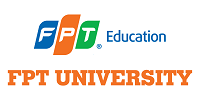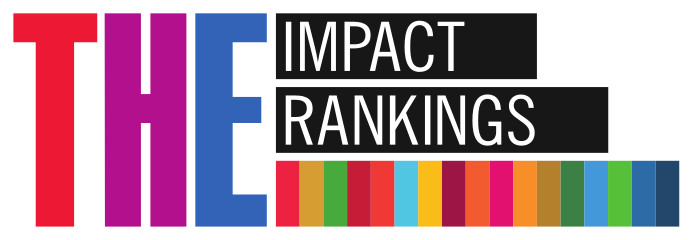General objectives
The academic program is application-oriented, aimed at training graduates in Korean Language with political qualities, professional ethics, an understanding of Korean culture, a solid knowledge of the language, and proficiency in practical language skills for use in multilingual and multicultural environments.
The program also provides additional knowledge and supplementary skills through three elective tracks: Economic and Trade Orientation, Tourism Orientation, and Pedagogical Orientation. This combination helps students gain strong professional competence, meeting the demands of society and the rapidly developing Vietnamese economy, which is integrating with the world.
Specific objectives
The academic program of Bachelor of Korean Language is more clearly demonstrated in the following specific objectives:
- PO1: Helps learners master the four skills of the Korean language (listening, speaking, reading, and writing) in academic, work, and social situations.
- PO2: Enables learners to use Korean in specialized fields such as translation and interpretation, tourism, and education.
- PO3: Provides learners with basic knowledge about the history, culture, literature, society, and economy of Korea, so they can analyze, assess, and apply this knowledge in economic exchanges and technology transfer between Vietnam and Korea.
- PO4: Ensures learners acquire solid expertise and professional skills in fields related to the Korean language, with a clear career orientation to meet the demands of society and the rapidly developing Vietnamese economy.
- PO5: Trains learners to effectively use English for communication within their future professional fields.
- PO6: Equips learners with teamwork skills, presentation skills, critical thinking skills, and the ability to plan and manage time effectively.
- PO7: Provides learners with knowledge about entrepreneurship and fosters an entrepreneurial spirit.
- PO8: Develops learners’ basic physical skills, instills the habit of exercising and playing sports, improves physical fitness, and enhances health, contributing to their overall educational goals.
- PO9: Equips learners with an understanding of political theory, the Party’s policies, state policies, national defense, and culture in the context of international integration.
- PO10: Provides learners with a strong foundation for self-directed learning and personal development, laying the groundwork for further studies and research at higher academic levels.
Career prospects
After graduating, graduates in the bachelor’s program of Korean Language can work in domestic enterprises, foreign-invested enterprises, representative offices, economic and financial organizations, etc. In particular, they will be able to work as:
– Office secretaries, foreign affairs assistants, administrative assistants, assistant directors, market development officers, etc.: They will be able to use Korean to work at foreign or joint enterprises, Vietnamese enterprises, and fields that involve the use of the Korean language.
– Employees and managers in the tourism and hotel sector: They will be able to take on positions in the tourism industry such as tour guides, travel sales staff, customer care staff, hotel managers. tour operators, etc. They can work in travel agencies, and domestic and foreign travel agencies that specialize in organizing tours and travel programs for Korean tourists to Vietnam and vice versa.
– Translators, interpreters, and editors: They can work at Korean agencies and enterprises or Vietnamese agencies and enterprises cooperating with Korean partners, at press agencies, publishing houses, media agencies, etc. In addition, they can work as freelance interpreters and translators for businesses or press agencies, diplomatic offices, etc.
– Researchers, lecturers, and teachers: They can carry out research in research centers and units on Korean studies at home and abroad. They can also teach Korean to Vietnamese students at agencies, schools, or organizations.
Program Learning Outcomes
| PLO Name | PLO Description | |
| 1 | PLO1 | Apply knowledge of social sciences, political law, and national defense security to professional and academic activities. |
| 2 | PLO2 | Proficiently apply knowledge of information technology and artificial intelligence in work to meet the demands of today’s technology-driven society. |
| 3 | PLO3 | Conduct thorough reasoning based on acquired knowledge to plan, organize, supervise, and manage professional tasks. |
| 4 | PLO4 | Make sound judgments based on knowledge of Korean linguistics, Korean studies, and translation theory to handle situations in professional work. |
| 5 | PLO5 | Synthesize learned knowledge and relate it to practical knowledge to establish a strong foundation in professional fields such as Korean language for economic trade, tourism, or pedagogy. |
| 6 | PLO6 | Proficiently use Korean in all four skills (listening, speaking, reading, writing) at the equivalent of TOPIK II level 5, corresponding to level 5/6 in the 6-level Foreign Language Proficiency Framework for Vietnam, or C1 level in the Common European Framework of Reference for Languages (CEFR). Proficiently use English at level 4 in the Foreign Language Proficiency Framework for Vietnam, or B2 level in the CEFR. |
| 7 | PLO7 | Effectively communicate, present issues, provide counter-arguments, critique, and evaluate results and the quality of work to resolve specific tasks or complex problems. |
| 8 | PLO8 | Apply entrepreneurship skills effectively to implement entrepreneurial projects, creating jobs for oneself and others. |
| 9 | PLO9 | Demonstrate the ability to work independently, take personal responsibility, self-direct, draw professional conclusions, and defend personal viewpoints. Foster a spirit of lifelong learning, adapt to continuous technological and societal changes, and uphold ethical standards both in work and society, with a strong commitment to community service. |
| 10 | PLO10 | Exhibit professionalism, responsibility in teamwork, and the ability to plan, guide, coordinate, supervise, and evaluate others to improve work efficiency. Additionally, maintain strong mental and physical resilience, express national identity, and confidently integrate into the international community. |



